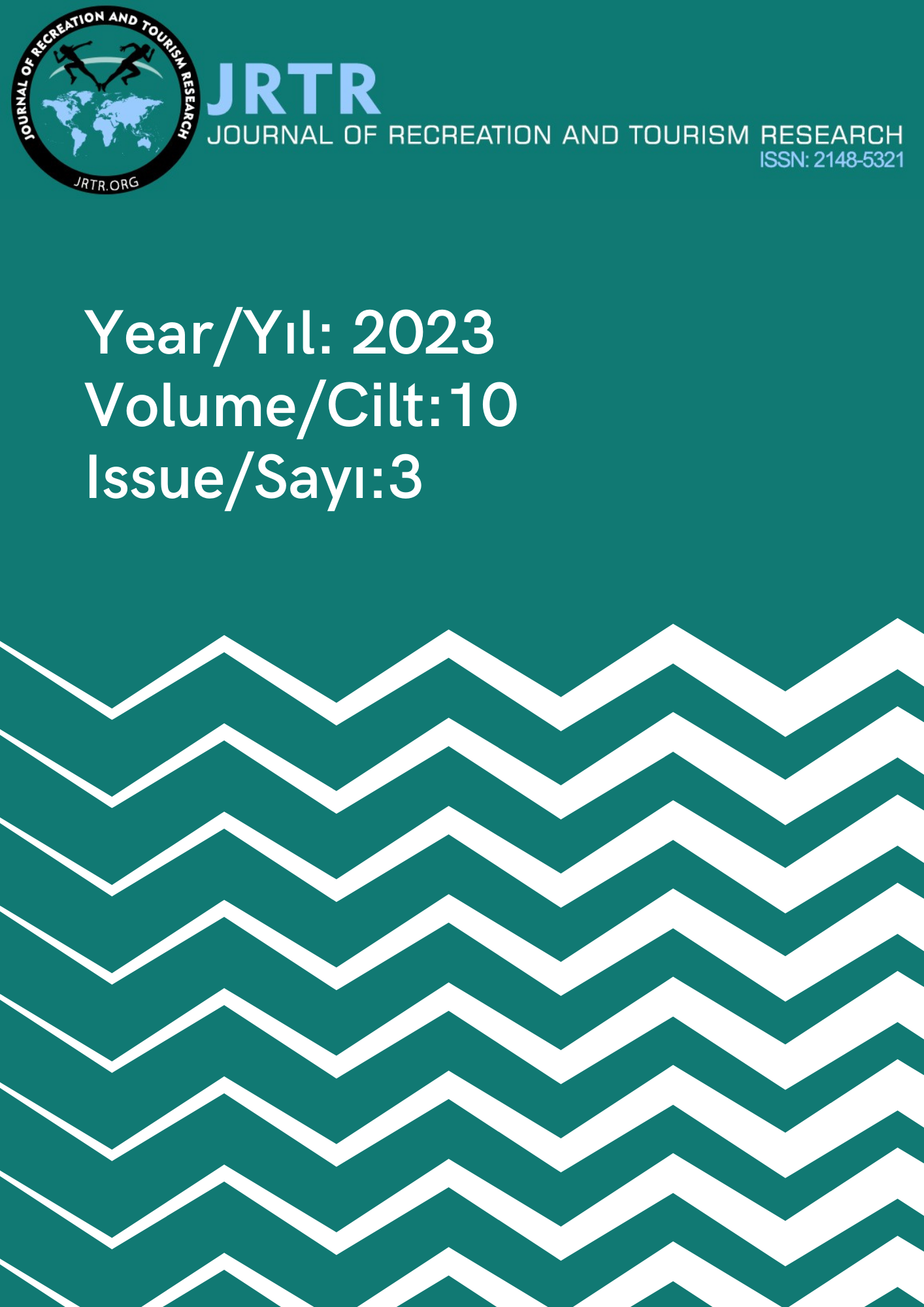Evaluation of Southern African Countries from a Gastronomic Perspective
DOI:
https://doi.org/10.5281/zenodo.8394328Keywords:
Gastronomy, South Africa, Culinary, Food-Beverage, TourismAbstract
It was only in the nineteenth century that the African continent, with its fertile land and human resources as labor force, managed to attract the attention of the world. The political, financial or sociological interventions of European countries such as France, the Netherlands, Belgium and Germany, especially England, laid the foundations of the world we live in today. The aim of this study is to examine all aspects of the gastronomic culture of the South African region and to analyze its agricultural, geographical and cultural characteristics. The African continent today consists of five regions, namely West Africa, East Africa, North Africa, South Africa and Central Africa. There are a total of 54 countries in these regions with a total population of billions. Thousands of ethnic communities live in Africa and there are cultural differences between these communities. The main reason for these differences is the lack of communication in the past. The gastronomic culture of these societies has been influenced by agriculture, economy and the policies implemented by countries. The people of the countries located on fertile lands have had to cope with problems such as wars, nature, famine and thirst. In this study, the differences in the gastronomic culture of the countries in the Southern Africa region, gastronomic values, culinary rituals and cultures, and the place and importance of the ingredients used were discussed and the culture of the region in the field of gastronomy was evaluated. As a method, a literature review was conducted and causal comparison method was used.
Downloads
References
Afrian Philosophical Ideas: Evidence From The Karanga of Zimbabwe, Academic Research International, July Vol. 5(4): 371-385
Aras, O. N. (2004). Akıyla Karasıyla Güney Afrika, Bepress Yayınları.
Döngel A ve Önçel S. (2016) Dünya Mutfakları II. Eskişehir: Anadolu Üniversitesi Yayınları.
Food, Cuisine, and Cultural Competency for Culinary, Hospitality, and Nutrition Professionals, Sari Edelstein, PhD, RD, syf; 359
Gadaga, T. H., Mutukumira, A. N., Narvhus, J. A., & Feresu, S. B. (1999). A review of traditional fermented foods and beverages of Zimbabwe. International journal of food microbiology, 53(1), 1-11.
Gadava vd,(2013). Tradıtıonal Fermented Foods Of Lesotho, Journal of Microbiology, Biotechnology and Food Sciences2013 : 2 (6) 2387-2391
Griffith, C. J., Jackson, L. M., & Lues, R. (2017). The food safety culture in a large South African food service complex: Perspectives on a case study. British Food Journal, 119(4), 729-743.
http://chefbolek.blogspot.com.tr/2011/09/around-world-in-80-dishes-mozambique.html
Issn: 2148-970x
İmamaliyeva, U. (2023). Kültürel Çeşitlilikte Afrika Kültürü. Balkan & Near Eastern Journal of Social Sciences (BNEJSS), 9(4).
Kari Cornell and Peter Thomas, Cooking the southern African way , s.49
Katongole JN (2008). The microbial succession in indigenous fermented maize products. Magister Scientiae Agriculturae, University of Free State, Bloemfontein.
Lois Sinaiko Webb , Multicultural cookbook of life-cycle celebrations, s. 17
Mbaiwa, J. E. (2011). Changes on traditional livelihood activities and lifestyles caused by tourism development in the Okavango Delta, Botswana. Tourism management, 32(5), 1050-1060.
McKenna, A. (2011). History of South Africa.
Mhaka, Edison. (2014). Rituals and Taboos Related To Death As Repositories of Traditional
Misihairabgwi, J ve Cheikhyoussef, A (2017), Journal of Ethnic Foods, 4 (2017) 145e153
Ogle, B. M., & Grivetti, L. E. (1985). Legacy of the chameleon: Edible wild plants in the kingdom of Swaziland, Southern Africa. A cultural, ecological, nutritional study. Part IV‐nutritional analysis and conclusions. Ecology of Food and Nutrition, 17(1), 41-64.
Qekwana, N. D., & Oguttu, J. W. (2014). Assessment of food safety risks associated with preslaughter activities during the traditional slaughter of goats in Gauteng, South Africa. Journal of food protection, 77(6), 1031-1037.
Simatende, P., Gadaga, T. H., Nkambule, S. J., & Siwela, M. (2015). Methods of preparation of Swazi traditional fermented foods. Journal of Ethnic Foods, 2(3), 119-125.
Solange vd, (2014). American Journal of Research Communication, 2014 : Vol 2(5)
The Imperial African Cookery Book Recipes from English-speaking Africa by Will Sellick,354
Todorov, S. D. (2008). Bacteriocin production by Lactobacillus plantarum AMA-K isolated from Amasi, a Zimbabwean fermented milk product and study of the adsorption of bacteriocin AMA-K to Listeria sp. Brazilian Journal of microbiology, 39(1), 178-187.
Topbaş, A. (2023). Unesco’nun Kamu Diplomasisinde Bir Araç Olarak Kullanılması: Türkiye Örneği (Doctoral Dissertation).
Tsoubaloko, F. H. The rıtuals and Dance of Namıbıa: Hıstorıcal Backgroung, , sf. 1-33
Uluk, H. A. (2023). Göç Bağlamında Yemeğin Rolü Nasıl Değerlendirilir? Hacettepe Üniversitesi İletişim Fakültesi Kültürel Çalışmalar Dergisi
Verseput, C., & Piccoli, G. B. (2017). Eating Like a Rainbow: The Development of a Visual Aid for Nutritional Treatment of CKD Patients. A South African Project. Nutrients, 9(5), 435.
Wedding Traditions in Namibia, http://namibiawedding.com/wedding-traditions-in-namibia/
Will Sellick , The Imperial African Cookery Book Recipes from English-speaking Africa, s.285
http://www.magazinebbm.com/?p=339 Erişim Tarihi:01.09.2023
http://www.localhistories.org/mozambique.html Erişim Tarihi: 05.08.2023
http://www.cografya.gen.tr/siyasi/devletler/svaziland.htm, https://tr.wikipedia.org/wiki/Mozambik Erişim Tarihi:01.08.2023
http://www.studycountry.com/guide/ZW-history.htm Erişim Tarihi: 20. 08.2023
https://ipfs.io/ipfs/Qme2sLfe9ZMdiuWsEtajWMDzx6B7VbjzpSC2VWhtB6GoB1/wiki/Botsvana.html
http://thecommonwealth.org/our-member-countries/swaziland/history Erişim Tarihi: 06.08.2023
http://www.bbc.com/news/world-africa-14113084 Erişim Tarihi: 02.08.2023
http://www.everyculture.com/Ja-Ma/Lesotho.html Erişim Tarihi: 08.08.2023
Downloads
Published
How to Cite
Issue
Section
License
Copyright (c) 2023 Journal of Recreation and Tourism Research

This work is licensed under a Creative Commons Attribution-NonCommercial 4.0 International License.






